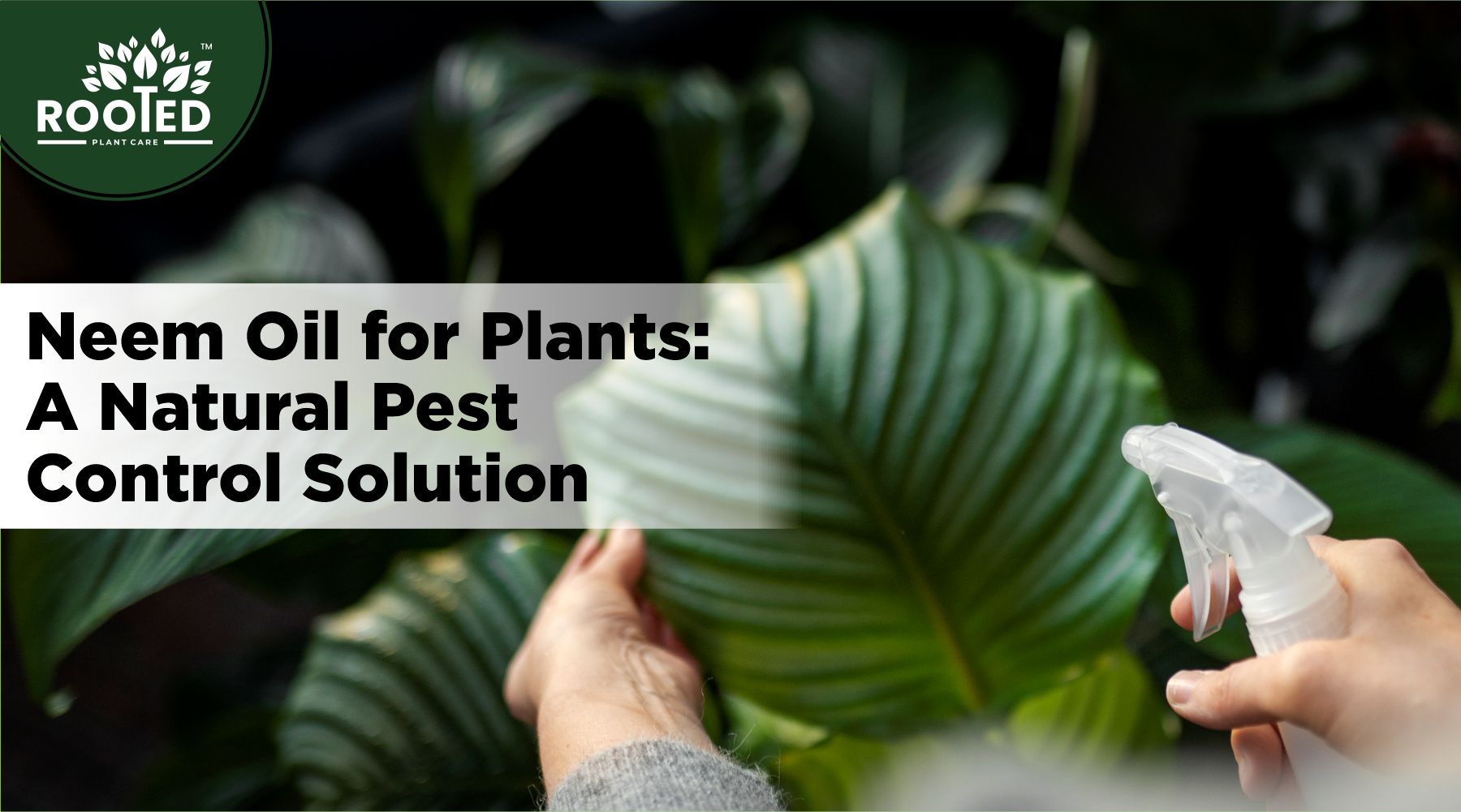Neem oil is a popular natural pesticide that has been used for centuries in traditional medicine and agriculture. It is made from the neem tree's seeds which include a variety of chemicals with insecticidal and fungicidal qualities, making it a safe and efficient alternative to toxic pesticides for pest control in gardens.
Explore the benefits of neem oil for your plants to keep pests away and maintain their health.
What Is Neem Oil And How Does It Work?
Neem oil is a pure oil made from the neem tree's seeds. Moreover, it serves as a repellent, preventing insects from landing on plants and feeding there. It functions as an efficient pest management method for plants since it contains components with insecticidal and fungicidal qualities. When applied to plants, Neem oil disrupts the life cycle of insects and pests, making it difficult for them to feed, breed, and reproduce. Additionally, neem oil has antifungal properties that can help to prevent fungal diseases in plants by inhibiting the growth of spores.
How To Properly Dilute And Apply Neem Oil To Plants?
If you are using Zyax Rooted Neem Oil Spray, shake the spray bottle well before spraying. Then, spray Rooted Neem Oil directly on the plant or into the soil. As per the requirement, re-apply if needed. In the case of the concentrated version, the solution should always be diluted before application to plants.
Neem oil concentrate can be used to naturally repel pests by mixing 10 ml of Rooted Neem Oil Concentration with 1 litre of water. Spray the Rooted Neem Oil Concentrate liquid liberally over the plant or apply it straight to the soil after proper mixing. Repeat as necessary.
It's important to note that neem oil should not be applied during the heat of the day or in direct sunlight, as this can cause damage to the plant and leaf burn. It is also recommended to test a small area of the plant first before applying it to the entire plant, as some plants may be sensitive to neem oil.
Common Pests And Diseases Neem Oil Can Control:
Zyax’s Rooted Neem Oil Spray is effective against a wide range of pests and diseases that commonly affect plants, including aphids, spider mites, whiteflies, mealybugs, scale insects, and powdery mildew. It disrupts the pest’s hormonal balance, preventing it from feeding & reproducing. Moreover, neem oil possesses antifungal qualities that can aid in the prevention and treatment of fungi-related ailments like rust, black spots, and leaf spots. Neem oil can help keep your indoor & outdoor plants healthy and flourishing naturally without the need for dangerous chemicals.
Benefits Of Using Neem Oil Over Synthetic Pesticides:
Neem oil is a natural and organic alternative to synthetic pesticides, which can be harmful to both the environment and human health. Neem Oil does not leave any hazardous residues on plants or in the soil, unlike synthetic pesticides. It is useful near beneficial insects that naturally control pests, such as bees and ladybirds. Additionally, neem oil is biodegradable and breaks down quickly in the environment, making it a sustainable choice for gardeners looking to reduce their environmental impact. It is also safe to use around children & pets due to its chemical-free properties.
Neem Oil Precautions And Safety Advice:
While neem oil is generally considered safe and non-toxic, it is important to take some precautions when using it on your plants. First, always follow the instructions on the label carefully. It is also recommended to wear gloves and protective clothing when handling neem oil, as it can cause skin irritation in some people. Finally, avoid spraying neem oil on plants during the hottest part of the day, as this can cause the neem oil to evaporate too quickly and reduce its effectiveness.
Overall, neem oil is a safe and effective natural pest control solution that can help protect your plants from pests and fungal diseases without using harsh chemicals.

